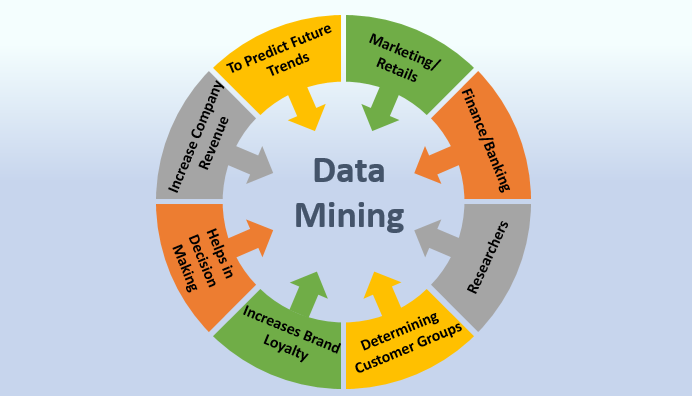AI in Small Teams—Redefining Daily Tasks
Artificial Intelligence, often hailed as a boost for productivity, is reshaping how small teams function. With limited resources, these teams need every edge they can harness. While big corporations have been splurging on elaborate technological solutions for years, small teams are increasingly recognizing AI as their secret weapon to punch above their weight.
Elevating Team Collaboration
In small teams, where multitasking is the norm and everyone wears multiple hats, communication is paramount. AI tools can dramatically enhance collaboration by automating schedules and providing succinct project updates, allowing more time for creativity and thoughtful decision-making. This isn’t about replacing human touch; it’s about empowering it.
For instance, consider a team planning a marketing campaign. Typically, this involves back-and-forth emails, scheduling conflicts, and miscommunications. With AI, these hurdles are minimized. An intelligent assistant can schedule meetings, send out reminders, and even summarize key points from discussions. Decisions are made faster, allowing more space for innovation.
Taking collaboration a step further, AI-driven software can analyze team dynamics to anticipate potential obstacles and mediate in ways that foster harmony. By understanding individual workflows and preferences, it offers suggestions tailored to the needs of the team. This proactive approach encourages smooth cooperation, allowing team members to invest their energies where they’re most needed.
Efficiency in Managing Routine Tasks
For small teams, routine tasks can become a drain. Daily activities that seem minor can accumulate into significant time sinks. AI’s ability to automate repetitive tasks such as data entry, email management, and report generation means vital hours are reclaimed.
Imagine a startup working on a new app. Developers, designers, and marketing folks are all in. Meanwhile, someone is stuck updating spreadsheets. Why should a task that can be automated hold back potential breakthroughs? By delegating these tasks to AI, team members are free to focus on their core competencies.
Moreover, AI’s learning capabilities ensure that each repetition of a task is done with improved precision and speed. This continuous refinement not only lightens the load but also assures consistency, benefitting small teams by elevating the quality of their day-to-day operations.
In line with AI efficiency, teams can streamline with business process automation, which integrates seamlessly with existing systems to minimize inefficiencies and enhance overall workflow productivity. This ensures that team efforts are concentrated where they truly matter.
Data Analytics Made Simple
Numbers drive decisions. However, understanding data can be particularly daunting for small teams without a dedicated analytics department. AI simplifies data interpretation, transforming raw data into actionable insights. This allows teams to act swiftly, pivoting strategies based on real-time information.
For small businesses seeking to understand customer behavior, AI can collate and analyze vast datasets quickly. It can identify trends, forecast outcomes, and offer actionable insights—all while maintaining accuracy. The capacity to make informed decisions without a PhD in data science opens new avenues for profitability and growth.
The intuitive nature of AI analytics tools means small teams are not bogged down by technological challenges. They can access insights effortlessly, enabling them to adapt campaigns, enhance product offerings, and refine customer targeting without missing a beat. Such agility is the hallmark of teams poised for success.
Cultivating an Innovation Culture
AI not only handles mundane tasks but also nurtures a culture that embraces creativity. By alleviating the burden of routine work, AI catalyzes a climate where fresh ideas flourish. This isn’t merely a theoretical leap; when team members aren’t bogged down by menial tasks, their minds gravitate naturally toward innovation.
Creative brainstorming, experimenting with wild ideas, and collaborating on novel projects become the everyday norm rather than exceptional events. Teams empowered by AI are agile, adaptive, and ready to try new things to see what sticks.
By fostering an environment where ideas are encouraged and tested with minimal risk, AI ensures that small teams remain at the forefront of their industries. This supportive backdrop allows members to iterate quickly and confidently, instilling a spirit of exploration and daring that fuels sustained growth and creativity.
The Future is Personal
We’ve heard tales of AI overtaking jobs and making roles redundant. But for small teams, AI ushers in a personalized future. It tailors outputs to unique team preferences, making work not just more productive but also more enjoyable.
Consider a graphic design team. AI can automate repetitive design tasks but can also learn individual preferences, making suggestions that align with personal tastes and past projects. The result? Team members spend less time on groundwork and more time on what they love—creating.
As AI continues to learn from interactions, it starts predicting needs and offering custom solutions that resonate with teams on a deeper level. This personalization ensures that AI feels less like a tool and more like an intuitive collaborator, enhancing the overall work experience and bolstering team satisfaction.
Conclusion
Embracing AI is no longer a game reserved for Silicon Valley giants. Small teams have begun to realize AI’s potential in redefining their daily tasks. Whether it’s simpler collaboration, easing the load of routine tasks, or bringing data analytics within reach, AI is indeed a game changer. As AI continues to evolve, its role in smaller teams will only grow, guiding them towards smarter, more focused workdays. In the end, it’s not about tech for tech’s sake; it’s about finding better ways to get things done.







